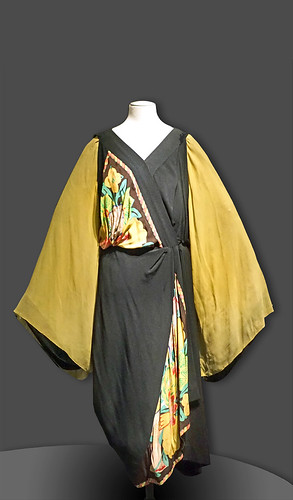Welcome to Word Buzz Wednesday, your go-to place for the most interesting words of the week. The latest: a winning word, a hangover non-cure, an intense study of nature.
marocain
“Ananya Vinay from Fresno correctly spelled the word marocain – a type of dress fabric – to defeat Rohan Rajeev, 14, from Oklahoma.”
“Ananya Vinay, 12, wins US spelling bee with ‘marocain’,” BBC, June 2, 2017
Marocain is a dress crepe “similar to Canton crepe.” What’s Canton crepe? It’s a soft silk or rayon fabric “with a finely crinkled texture, similar to but heavier than crêpe de Chine.” What’s crêpe de Chine? A thin, usually silk fabric “used to make dresses or blouses.”
The word marocain comes from the French word for “Moroccan,” according to the BBC.
banana bag
“This year, you can go into a fully qualified medical tent and buy yourself what’s known as a banana bag – the ultimate hangover cure in IV form – and have your feet rubbed while you ingest it.”
Elisa Bray, “Secret Garden Party: Why a pioneering festival wants to change the format,” The Independent, June 6, 2017
A banana bag — named for its yellow contents — is an IV bag commonly given to “patients at risk for alcohol withdrawal symptoms or those who present to the emergency department (ED) acutely intoxicated,” says Academic Life in Emergency Medicine.
One of the rationales behind this is “the administration of fluids is conventionally believed to help speed up sobriety.” However, studies have shown “there’s no evidence that IV fluids expedite sobriety in patients with acute alcohol intoxication.” Presumably, this means banana bags won’t be much help with curing or preventing hangovers either.
Barnes dance
“The District Department of Transportation says the intersection of 14th and Irving Streets Northwest will soon be the site of what’s called a ‘Barnes dance’ crossing.”
John Domen, “Northwest DC intersection getting a ‘Barnes dance’ makeover,” WTOP, June 4, 2017
The Barnes dance, also called a scramble or pedestrian scramble, “is an intersection where car traffic halts for a bit so pedestrians can cross in all directions — including diagonally,” says CityLab. It’s named for traffic engineer Henry Barnes. While he didn’t invent the crossing, he did popularize it during his time as street commissioner in Denver.
The “dance” part of the phrase is said to come from a reporter who said the crossings “made the people so happy they’re dancing in the streets.” It’s also obviously a play on barn dance, a social event with music and dancing, often taking place in a barn.
charrette
“The event on Saturday was what’s known as a ‘design charrette.’ Organizers say they plan to hold more in the future, and to invite people from the neighborhoods near the Innerbelt.”
Kabir Bhatia, “Planners Try to Figure Out What Comes Next After a Highway Becomes Open Space,” WKSU, June 5, 2017
A charrette is “a period of intense work, especially group work, undertaken to meet a deadline.” It seems to have originally referred to architectural students but now may apply to any type of work. The word comes from a design term, en charrette, French for “on the cart,” used to describe the frantic period before a deadline and originating from a time when drawings were transported by cart.
bioblitz
“Howard and other naturalists surveyed Rock Run on Saturday as part of what’s called a ‘bioblitz’ to find rare, threatened and endangered native species to make a case to the state that the upper watershed of Shawnee State Forest should be saved from logging.”
Megan Henry, “Naturalists hold ‘bioblitz’ to save section of Shawnee State Forest from logging,” The Columbus Dispatch, June 4, 2017
A bioblitz, also BioBlitz, is an “intense period of biological recording within a specific area,” usually over 24 hours and involving both “experts and amateurs taking an inventory of all the living organisms within an area.”
A blitz can refer to “heavy aerial bombardment”; “an intense campaign”; and in football, a “sudden charge upon the quarterback by one or more of the linebackers or defensive backs when the ball is snapped.” The word first appeared in English in 1940, says the Online Etymology Dictionary, as a shortening of blitzkrieg, a German word meaning “rapid attack” and translating literally as “lightning war.”
